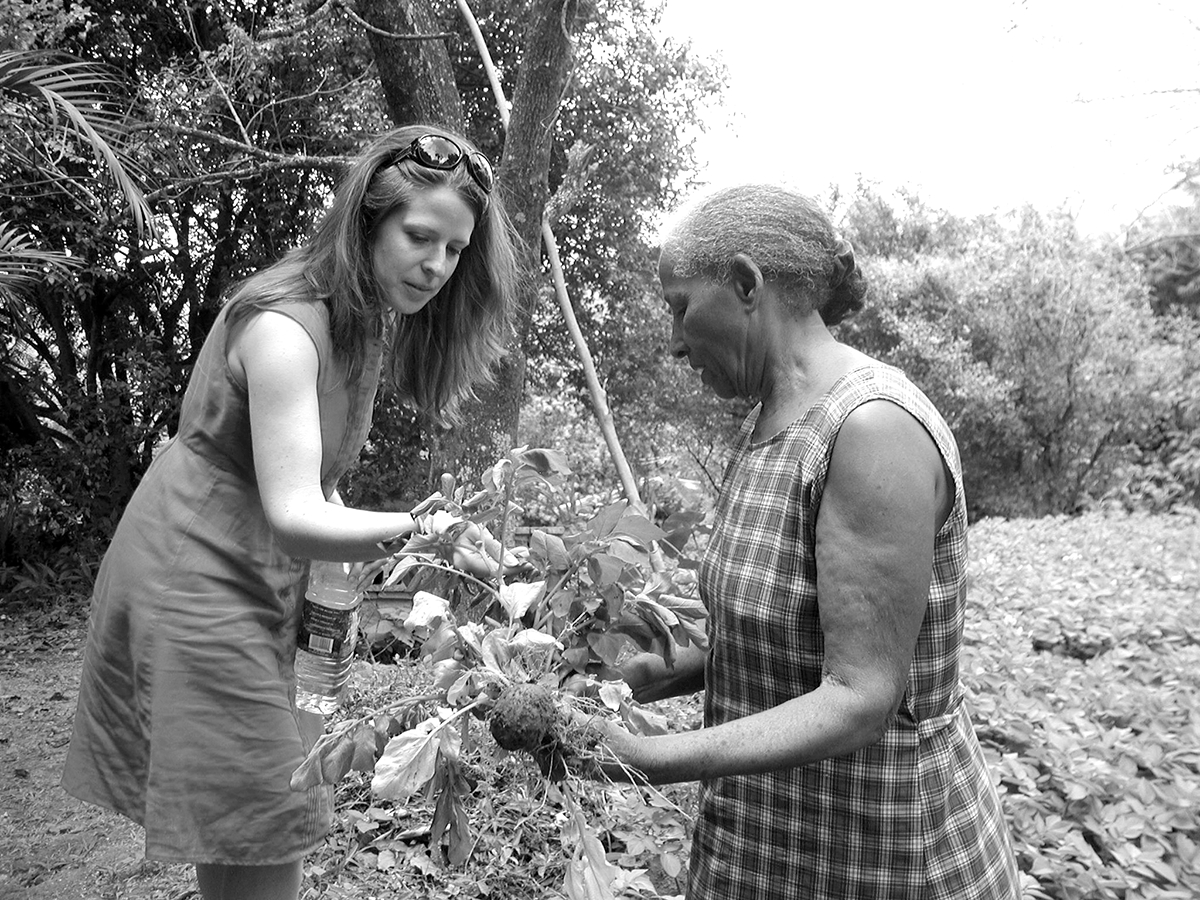
by Samantha King, PhD candidate, Department of Anthropology, University of North Carolina at Chapel Hill
The Commonwealth of Dominica is a rural island nation in the Eastern Caribbean in which most households depend upon agriculture, both for subsistence and exchange. Production is dominated by small family farms that supply global export markets as well as the intra- and inter-island trading networks that comprise a robust yet poorly-understood local food economy.
As in many Afro-Caribbean societies, women in Dominica have vital social and economic roles in agriculture. However, it is common for their contributions to go unacknowledged in policy discussions and development interventions related to the agricultural economy. During my initial fieldwork on gender and sustainable development in 2012, I commonly received statements from government and international aid officials—as well as some U.S. academics—attesting to the lack of female participation in agriculture. “Women aren’t farmers in Dominica,” “there aren’t many women in agriculture here,” and “they [women] do other things” were among a few of the comments I received. I was perplexed by this apparent contradiction, not to mention unconvinced that it could actually represent reality. How, in a society in which the majority of households are involved in agriculture and where nearly 40 percent of households are headed by women, is it possible that women do not farm?
Through my research with farming families in Dominica, I have begun to answer this question and to document women’s substantial contributions in agriculture. What I have found is that women’s roles and labor are frequently obscured and devalued because they are not associated with formal activities and measures used to quantify economic productivity such as occupation, market sales, income, GDP, and so on. In other words, economic statistics present a partial yet dominant view of agriculture that obscures both gender and economic difference. This funnels support and recognition towards specific types of farming, which tend to be dominated by men.
Importantly, these circumstances are not unique to Dominica. In many ways, they are the result of agricultural development initiatives that have historically targeted men for export-based commodity production while relegating women to traditional forms of production for subsistence and local exchange. In Dominica, the division of agriculture along gender lines has had major impacts for women and the local food economy, rendering both largely invisible and unsupported.
However, in recent years shifting global economic dynamics have made participation in commercial export production increasingly burdensome and risky. These circumstances have led many farmers and communities around the world to seek out alternatives that promote self-sufficiency and independence from the global economy. In Dominica, farmers have responded to these pressures with innovative strategies and grassroots partnerships that are building new and expanding existing networks of local production and trade. Many of these networks are maintained by women who grow, process, and market food for family and community consumption and for local and regional trade.
Today, Dominica’s local networks safeguard the ecological sustainability of agricultural production, ensure high levels of food security and health throughout the country, and provide economic stability and autonomy for many families and communities. For women especially, engaging in food production for household subsistence needs and local exchange has long been understood as a flexible and effective strategy through which to assert independence and navigate social barriers that limit their access to, and potential in, other sectors of the economy.
My ongoing work seeks to advance knowledge on the impacts of these contemporary agricultural transitions as well as the issues that local food systems face in relation to recognition, support, and gender equity. In focusing on the “hidden” spheres of production and exchange that comprise the local food economy in Dominica, this project advocates for a more nuanced and inclusive understanding that challenges dominant assumptions of what agriculture is, how it works, and who participates in it. In so doing, it also challenges women’s invisibility by describing their key social and economic contributions as food producers, traders, and family providers with critical roles in regional food security, sustainability, and economic resiliency.
—Samantha King is a PhD candidate in cultural anthropology at the University of North Carolina at Chapel Hill effective fall 2015. As a PhD student in the UO Department of Anthropology, she was awarded a 2014 CSWS Graduate Student Research Grant to support her research. More information on her research can be found at http://samanthaking.info

